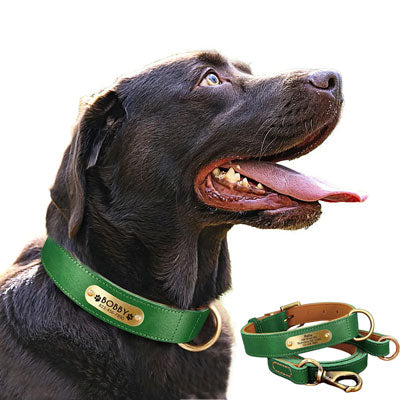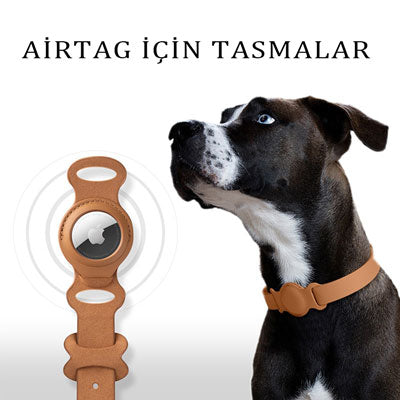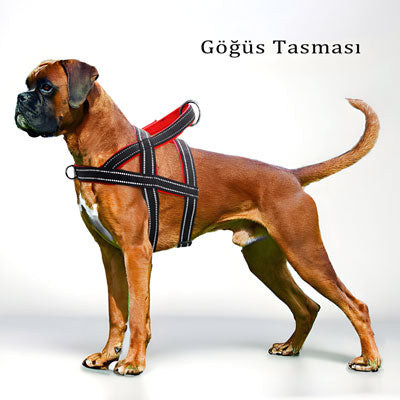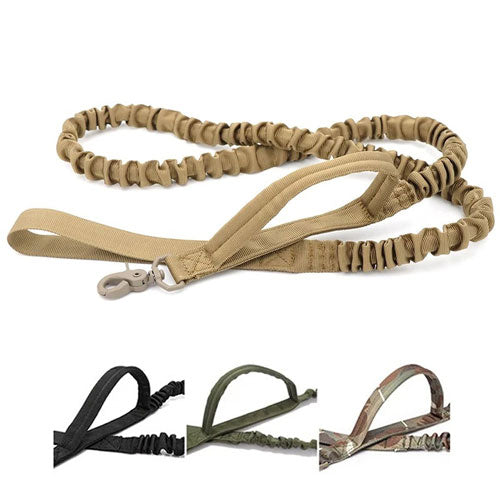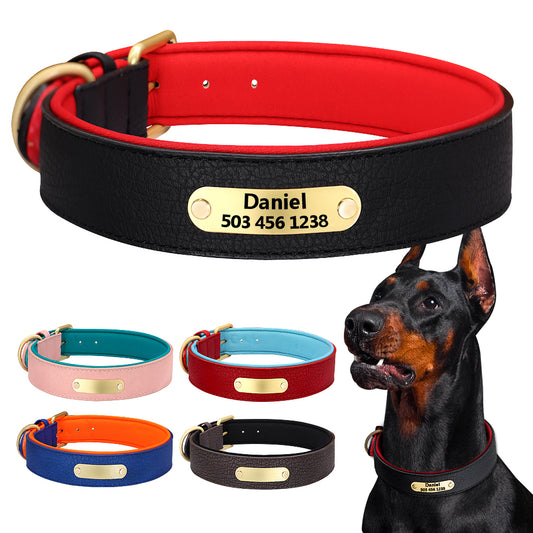
Pregnancy Process Guide in Dogs
Feeding Your Dog During Pregnancy
Dog pregnancy is an incredibly exciting event, and meeting your dog's nutritional needs during pregnancy increases the chances that the pregnancy and birth will go smoothly.
What you give during pregnancy really makes a difference and prepares both her and her offspring for optimal health.
1-6 weeks of pregnancy weeks
Once you've confirmed that your dog is pregnant and have an estimated fertilization date, the goal for the first six weeks is to maintain her ideal weight.
Early weight gain can increase the risk of dystocia (problems giving birth), so the target, ideal body condition score should be maintained and weight gain should be no more than 10% during the first six weeks.
During this period, embryos grow quite slowly and there is no increase in the pregnant dog's energy needs. Therefore, an adult care should be fed a complete and balanced, quality commercial diet and follow normal dietary guidance.
You may notice a decrease in appetite or some fluctuations due to hormonal changes – don't worry, this is normal. However, if this continues or you see that he is starting to lose weight, you should take him to a vet for a check-up.
6-9th week of pregnancy weeks
At approximately day 42, two major changes begin:
- Your pregnant dog's energy and nutrient needs begin to increase as the growth of the fetuses accelerates.
- As fetuses begin to occupy more of the abdominal cavity, the space in the stomach that can accommodate these foods begins to decrease.
For these reasons, it is important to adjust his feeding at this point.
You can estimate how many puppies you can expect with an ultrasound scan at the vet. This also helps with nutrition. If she is expecting a large litter of puppies she will need extra energy and nutritional supplements, if she is expecting just one litter you may need to be more careful about the amount you feed to ensure the fetus does not become too large
Starting from Week 6
In about five days, you should transition your dog from his current nursery formula to a puppy formula. A gradual change is necessary to avoid stomach problems.
It's important to offer a puppy food from this stage because it is higher in energy, protein and some vitamins and minerals, including calcium and phosphorus, than adult food. All of these nutrients are important to support your dog through the final stages of pregnancy and provide her puppies with the nutrients necessary for their development.
Puppy food is more nutritious, which is beneficial as stomach space begins to decrease and you may see a decrease in your dog's appetite.
You should choose a good quality, highly digestible diet because this reduces the effort it takes for your dog's intestine to break it down and ensures your dog gets as many nutrients from it as possible. Also consider the size of your dog when choosing a puppy food – for example, a small breed dog should be fed a small breed puppy product.
Once you switch to a puppy food, you should also gradually increase your intake of more. A good rule of thumb is 10% more energy each week until birth.
Energy Needs of a Pregnant Dog
| Time | Energy Needs |
|---|---|
| Weeks One to Five | Same need as adult care |
| Week 6 | Maintenance levels + 10% |
| Week 7 | Week 6 + 10% |
| Week 8 | Week 7 + 10% |
| Week 9 | Week 8 + 10% |
To be sure, especially with smaller stomach space, you should offer food in small, frequent meals, rather than two large meals a day. Giving dry or wet food is an important issue. If you feed a wet meal you will need to offer a much larger volume of food each day, especially in larger breeds it can be a very large amount by week 9.
Monitor your dog's body condition score throughout this period: while she will gain weight in the last third of pregnancy, it is important that she is not overweight, as this could cause problems during birth
Don't forget to drink water!
Make sure your dog has easy access to plenty of fresh, clean drinking water, especially if he is fed a dry food formula. This will also be particularly important during breastfeeding after birth
What Should We Consider About Vitamin and Mineral Supplements for a Pregnant Dog?
If your dog is fed a proper, complete and balanced diet, vitamin or mineral supplements are not needed during pregnancy. The only exception is if your veterinarian has specifically prescribed it to the contrary.
In fact, supplements can be harmful. For example, excessive calcium supplementation can suppress the dog's parathyroid gland (the gland that mobilizes and maintains calcium in the body) and can lead to eclampsia (a condition in which the uterus fails to contract properly during birth).
IN SUMMARY
- Consult a Veterinarian: It is very important to consult a veterinarian before making any changes to a pregnant dog's diet. They can assess the dog's overall health, evaluate special nutritional needs, and offer personalized recommendations.
- Gradual Transition: If you plan to change your dog's diet during pregnancy, do so gradually. Sudden dietary changes can cause digestive upset. Start by mixing small amounts of the new food with the old food and gradually increase the proportion of the new food over a few days.
- High-Quality Dog Food: Choose a high-quality dog food specially formulated for pregnant or nursing dogs. Look for a brand that meets nutritional standards set by the Association of American Feed Control Officials (AAFCO). These diets are designed to provide essential nutrients for the mother and her developing offspring.
- Increased Calorie Intake: Pregnant dogs require more calories to support the growth and development of their puppies. However, it is important to avoid excessive weight gain as it can lead to complications during birth. Consult your veterinarian to determine the appropriate calorie increase for your dog's size and breed.
- Frequent, Smaller Meals: Instead of feeding one or two large meals, divide the daily portion into several smaller meals. This helps prevent overeating and reduces the risk of stomach upset or bloating, which can be especially problematic for pregnant dogs.
- Balanced Foods: Pregnant dogs need a balanced diet containing adequate amounts of protein, carbohydrates, fat, vitamins and minerals. Protein is especially important for the development of offspring. Look for a dog food that lists high-quality protein sources such as chicken, beef or fish as primary ingredients.
- Supplements: In some cases, your veterinarian may recommend special supplements to ensure your pregnant dog gets all the necessary nutrients. Common supplements for pregnant dogs include folic acid, iron and calcium. However, it is very important to consult a professional before adding any supplements to your dog's diet.
- Plenty of Water: Always have access to fresh, clean water. Pregnant dogs may experience increased thirst, so it's important to keep them hydrated. Monitor water intake and refill the bowl regularly throughout the day.
- Avoid Certain Foods: Some foods can be harmful to pregnant dogs and should be avoided. These include raw or undercooked meat, bones, chocolate, caffeine, onions, garlic, grapes and raisins. These items can be toxic or pose risks to developing puppies.
- Weight Monitoring: Monitor your dog's weight regularly during pregnancy. Sudden weight loss or excessive weight gain may indicate underlying health problems. If you notice any significant changes, consult your veterinarian.
Frequently Asked Questions About Feeding Pregnant Dogs
Q1: Can I continue to feed my pregnant dog her normal diet?
A1: While it is important to maintain a consistent diet, a pregnant dog's nutritional needs are different. Switch to a high-quality dog food formulated for pregnant or nursing dogs to ensure they receive essential nutrients.
Q2: How long is the gestation period for dogs?
A2: The gestation period for dogs is typically around 63 days, but can vary slightly depending on the breed. Keep track of the days to prepare for the arrival of the puppies.
Q3: Should I free feed my pregnant dog?
A3: Free feeding or leaving food out all the time is not recommended for pregnant dogs. It can cause overeating and excessive weight gain. Instead, offer smaller, more frequent meals throughout the day.
Q4: Can I give treats to my pregnant dog?
A4: Treats can be given in moderation, but make sure they are safe and healthy. Avoid treats that are high in sugar, fat or artificial ingredients. Opt for natural, dog-friendly treats instead.
Q5: Is it necessary to feed a pregnant dog supplements?
A5: It depends on the individual dog and his specific needs. Consult your veterinarian to determine whether any supplements are necessary and the appropriate dosage.
Q6: Should I make any changes to my dog's diet after giving birth?
A6: Yes, after birth, the mother dog's nutritional needs change again. She will need a diet specially formulated for nursing dogs to support milk production and provide essential nutrients for herself and her puppies.
Frequently Asked Questions - Dogs and Pregnancy
